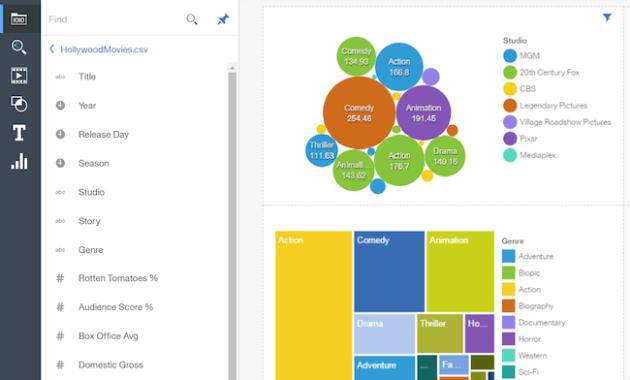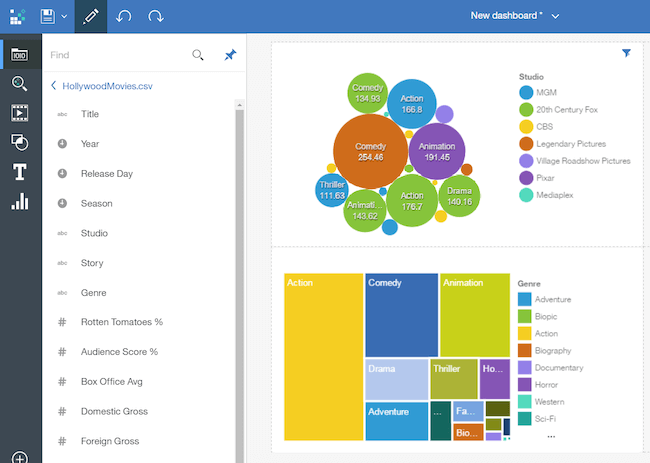
Business Intelligence Tools: A Deep Dive for Enterprises and Startups
In today’s data-rich environment, the ability to harness information is a key differentiator. This is where business intelligence (BI) tools come into play. They transform raw data into actionable insights. This article explores the landscape of business intelligence tools. It covers their benefits, and how both enterprises and startups can leverage them for success. We will also examine the specific tools available, and how to choose the right fit. The objective is to provide a comprehensive understanding of business intelligence tools for both established companies and emerging ventures.
Understanding the Power of Business Intelligence
At its core, business intelligence is about making informed decisions. It involves collecting, analyzing, and interpreting data. This data is then used to improve business performance. Business intelligence tools facilitate this process. They provide the necessary framework for data-driven decision-making. This empowers organizations to move beyond gut feelings. They can instead rely on concrete evidence.
The benefits are numerous. Increased efficiency, improved profitability, and enhanced customer satisfaction are key. Better understanding of market trends is another advantage. Business intelligence tools help identify opportunities for growth. They also help mitigate potential risks. The impact is significant. Companies that embrace BI often gain a competitive edge.
Key Benefits for Enterprises and Startups
While the goals are the same, the approach to BI can differ. Enterprises often have complex data infrastructures. Startups, on the other hand, may have simpler needs. Regardless of size, the benefits remain relevant.
For Enterprises:
- Enhanced Decision-Making: Enterprises have vast datasets. Business intelligence tools can help make sense of it. This leads to better strategic decisions.
- Improved Operational Efficiency: BI tools can identify bottlenecks. They can also streamline processes. This saves time and money.
- Better Customer Understanding: Deep dives into customer data offer insights. This helps personalize marketing and improve service.
- Risk Management: Early detection of potential risks is crucial. BI tools provide this capability.
For Startups:
- Data-Driven Growth: Startups can use data to fuel their expansion. They can identify market trends. They can also validate their business models.
- Resource Optimization: Limited resources require careful allocation. BI tools help prioritize investments.
- Competitive Advantage: Early adoption of BI provides a head start. This helps startups compete with larger companies.
- Agility and Adaptability: Startups need to be flexible. BI tools provide the agility to respond to market changes.
Essential Features of Business Intelligence Tools
Not all business intelligence tools are created equal. Some features are essential for effective data analysis. Choosing the right tool requires careful consideration. These are some of the key features to look for:
Data Integration
The ability to connect to different data sources is critical. These sources include databases, spreadsheets, and cloud services. The tool should support various data formats. This ensures seamless data flow.
Data Visualization
Effective visualization is key. Charts, graphs, and dashboards make data easier to understand. The tool should offer customization options. This allows for tailored reports.
Data Analysis
Advanced analytical capabilities are essential. Features like predictive analytics and data mining are valuable. These features uncover hidden patterns and trends.
Reporting and Dashboards
Reporting is a core function. The tool should generate custom reports. It should also provide interactive dashboards. These features help monitor key performance indicators (KPIs).
Collaboration and Sharing
Teamwork is often required for insights. The tool should allow for easy sharing. It should also facilitate collaboration. This ensures everyone has access to data.
Mobile Access
Mobile access is becoming increasingly important. Users need to access data on the go. The tool should offer mobile-friendly interfaces.
Top Business Intelligence Tools for Enterprises
The market offers a wide range of business intelligence tools. Some are better suited for large enterprises. These tools are typically robust and feature-rich. They often have advanced capabilities.
Tableau
Tableau is a popular choice. Its user-friendly interface allows for easy data visualization. It offers a wide range of data connectors. It is known for its powerful analytical capabilities.
Microsoft Power BI
Microsoft Power BI is another leader. It integrates seamlessly with other Microsoft products. It is cost-effective. It also offers strong data visualization features.
SAP BusinessObjects
SAP BusinessObjects is a comprehensive solution. It is often used by large organizations. It provides a wide range of features. It supports complex data models.
Oracle Analytics Cloud
Oracle Analytics Cloud is a powerful tool. It offers advanced analytics and machine learning capabilities. It is suitable for complex data environments.
Top Business Intelligence Tools for Startups
Startups often have different needs than enterprises. They typically require tools that are easier to implement. They also need tools that are more cost-effective. The following are some good options.
Zoho Analytics
Zoho Analytics is a user-friendly option. It integrates well with other Zoho products. It is affordable and offers a range of features.
Klipfolio
Klipfolio is a dashboard-focused tool. It is ideal for monitoring KPIs. It offers real-time data updates. It is easy to set up and use.
Looker Studio (formerly Google Data Studio)
Looker Studio is a free tool from Google. It is a good choice for startups. It offers data visualization and reporting capabilities. It integrates with various Google services.
Sisense
Sisense is a scalable BI platform. It is suitable for startups that anticipate growth. It offers powerful analytics and data integration. It is also designed for ease of use.
Choosing the Right Business Intelligence Tool
Selecting the right business intelligence tool is crucial. Several factors should be considered before making a decision. This ensures that the tool meets your specific needs.
Identify Your Needs
Determine your key business objectives. What data do you need to analyze? What insights are you seeking? Defining your needs upfront guides the selection process.
Assess Your Data Sources
Identify your data sources. Determine the volume and format of your data. Ensure the tool supports your data sources.
Consider Your Budget
BI tools vary in cost. Consider licensing fees, implementation costs, and ongoing expenses. Choose a tool that fits your budget.
Evaluate User-Friendliness
The tool should be easy to use. It should have an intuitive interface. Consider the skill level of your team. Make sure the tool is accessible.
Check Integration Capabilities
The tool should integrate with your existing systems. This includes CRM, ERP, and other business applications. Seamless integration is vital for data flow.
Look at Scalability
Consider your future growth. Can the tool scale with your business? Choose a tool that can accommodate increasing data volumes.
Read Reviews and Seek Recommendations
Research different tools. Read user reviews and case studies. Seek recommendations from industry experts. This provides valuable insights.
Implementation and Best Practices
Once you’ve chosen a tool, implementation is key. Following best practices ensures success. Here are a few important considerations:
Data Preparation
Clean and prepare your data. This involves data cleansing and transformation. It is critical for accurate analysis.
Training and Support
Provide training to your team. Ensure they understand how to use the tool. Seek support from the vendor if needed.
Regular Monitoring
Monitor your KPIs regularly. Track the performance of your business. Identify areas for improvement.
Iterative Approach
Start small and iterate. Begin with a pilot project. Gradually expand the use of the tool. This minimizes risk.
Security Considerations
Protect your data. Implement security measures. This includes access controls and data encryption.
The Future of Business Intelligence Tools
The field of business intelligence tools is constantly evolving. Several trends are shaping the future. These trends include increased automation, augmented analytics, and advanced AI integration. The tools are becoming more user-friendly and powerful. They are also more accessible to businesses of all sizes. The future looks promising. Companies that embrace these tools are well-positioned for success. They will be able to make more informed decisions. They will also drive innovation. The continued evolution of these tools will allow for even greater insights. This will lead to better business outcomes.
The adoption of business intelligence tools is no longer optional. It is a necessity for organizations. This is especially true in today’s competitive landscape. Both enterprises and startups can benefit. By selecting the right tool and implementing best practices, businesses can unlock the power of their data. They can transform it into a strategic asset. The key is to embrace the journey. The journey is towards data-driven decision making. The goal is to achieve sustainable growth and success. [See also: Data Analytics Trends for 2024]

